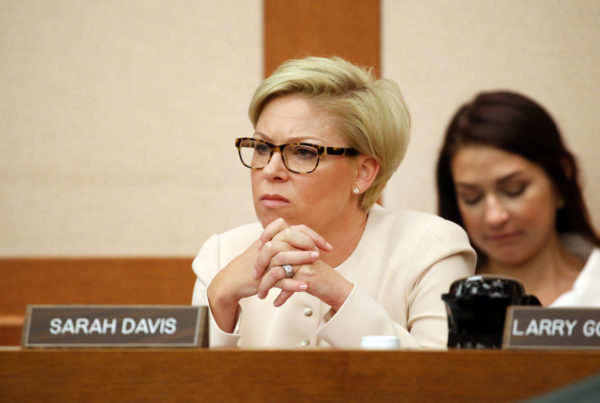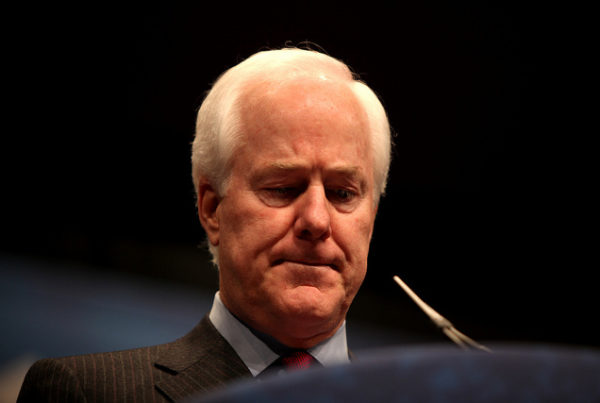The forces arrayed against Alabama judge Roy Moore are mounting. A fifth woman has come forward with sexual misconduct allegations against Alabama’s Republican candidate in the U.S. Senate race. Lawmakers in Texas may have to focus on problems closer to home, though, based on reports that are now coming to light.
Despite documented instances of sexual harassment, no formal complaints have been made against Texas lawmakers in the House or Senate, according to the Texas Tribune.
“We filed formal requests with both chambers asking for those complaints dating back to 2011 and were told that zero had been filed. And when we talked to the officials in charge of collecting and investigating those sort of complaints, they said they’d never had one,” says Alexa Ura, a reporter on the Texas Tribune investigative team.
Ura and her colleagues interviewed more than two dozen current and former lawmakers and legislative aides at the Texas Capitol who told the reporters that the problem is rampant.
Ura says one former staffer said sexual harassment at the Capitol is “as common as a ‘hello.’”
Former Texas Observer reporter Olivia Messer collected detailed accounts in an article for the Daily Beast last week, finding that none of the women had filed formal complaints.
“It appears women have little incentive to speak up,” Ura says. “They have a lot of fear about being ostracized, and really they’re facing a system that experts have told us doesn’t guarantee them that any sort of complaint will be resolved and a system that doesn’t really give authority to those investigating, particularly when it comes to elected officials.”
This environment led to the creation of a spreadsheet called the “Burn Book of Bad Men,” featured in Messer’s article, by women working in the Texas Capitol, according to Ura.
“Women end up sort of quietly sharing their stories and quietly passing along names of folks that they should be careful around,” Ura says.
She says sexual harassment policies have been in place for members of the House and Senate since 1995, but they may not be sufficient.
“We talked to an employment lawyer and a sexual assault advocate who is also a lawyer, who looked at the policies. They brought up several issues with them, particularly how some of these policies direct women to confront their sexual harassers directly without warning them that they don’t have to do this if they don’t feel comfortable,” Ura says. “The other problem is a lot of the women didn’t know that the policies existed at the Capitol.”
Some women lawmakers are taking preliminary steps based on the recent media attention.
“It seems like there are already folks who are hoping to fix this,” Ura says.
State Representative Linda Koop sent a letter to the Governor, House Speaker Joe Straus and Lieutenant Governor Dan Patrick asking for new protocol to protect women at the Capitol. Another senator told the Texas Tribune that she’s considering proposing legislation that would make sexual harassment training mandatory – and create an independent entity to oversee investigations.
Written by Kate Groetzinger.















